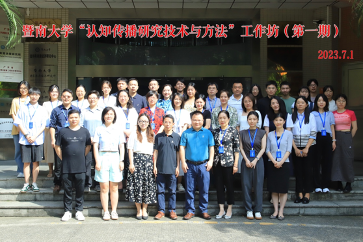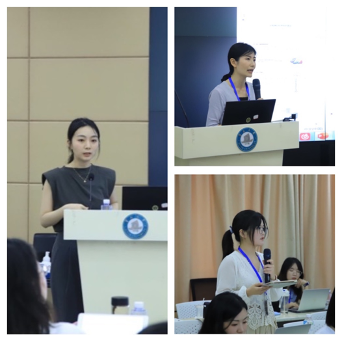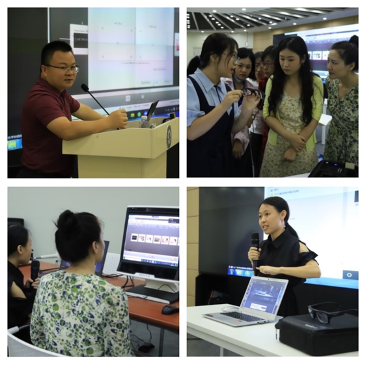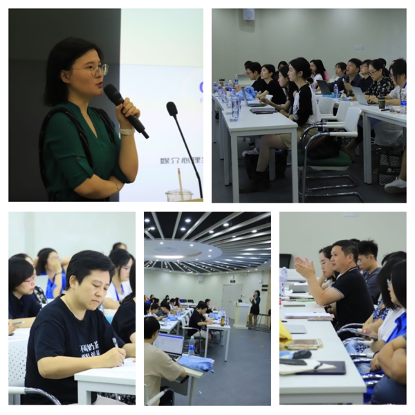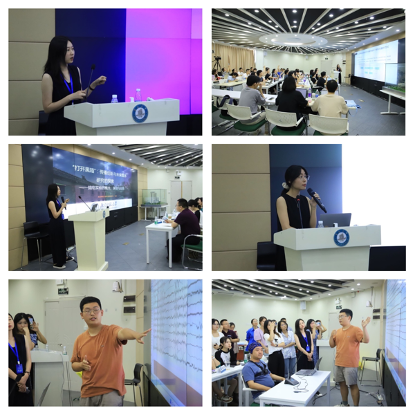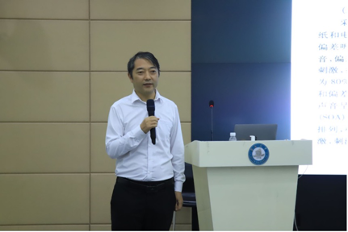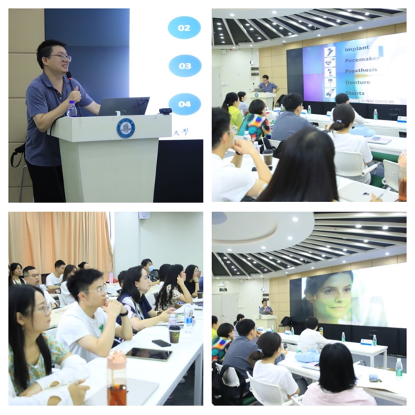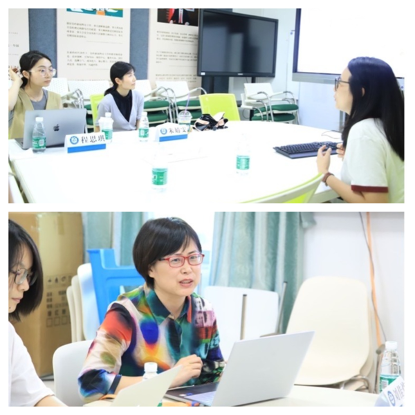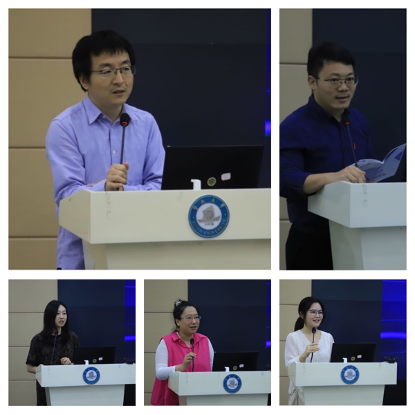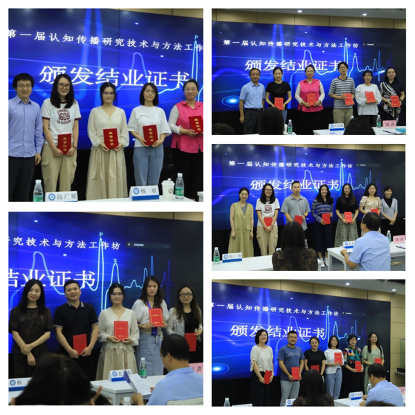Reprinted from public number: Cognitive Communication Society
The first workshop on "Cognitive Communication Research Techniques and Methods", jointly organized by the Chinese Society for Cognitive Communication and the School of Journalism and Communication of Jinan University, was officially opened on July 1, 2023.It starts for three days.The workshop is dedicated to cutting-edge research in the field of cognitive communication theory and research methods, with the aim ofTo provide free, open, high-quality training in the field for young scholars interested in cognitive communication.This workshop focuses on teaching the basic theory and basic operation methods of cognitive communication. The course covers topics in cognitive communication theory, psychophysiological measurement techniques, eye-tracking techniques, EEG EEG techniques, etc.The workshop attracted teachers and students from all over the country and from different majors.Theory and methods are combined, and lectures and discussions are held.Participants and speakers will have ample time to discuss and study relevant topics.
The opening ceremony was hosted by Professor Yan Qing from the School of Journalism and Communication of Jinan University. Prof. Ouyang Hongsheng, President of the Chinese Society of Cognitive Communication, and Prof. Zeng Yiguo, Vice Dean of the School of Journalism and Communication of Jinan University, delivered opening speeches. Associate Professor Chen Guangyao from School of Journalism and Communication, Jinan University delivered a speech on behalf of the lecturers.
The first course, "Basic Concepts and Theories of Cognitive Communication Research", was taught by Cheng Siqi, lecturer at the School of Journalism and Communication, Jinan University and director of the Chinese Society of Cognitive Communication, and Zhu Jingwen, researcher at the Institute of Media Studies, Chengdu University and deputy secretary-general of the Chinese Society of Cognitive Communication.Ms. Siqi Cheng sorted out the basic theoretical concepts of cognitive neuroscience, introduced technical signal indicators such as EEG and physiological electricity, and introduced theories and studies related to cognitive resources such as memory, emotion, attention and social cognition. Starting from representation as a research paradigm of cognitive neurocommunication, Ms. Jingwen Zhu opened a dialogue between behaviorism, cognitive psychology and cognitive neuroscience in terms of basic theoretical knowledge, providing a humanistic path of cognitive communication. The first lecture of the basic theory course outlined the initial framework of cognitive communication research for the participants, popularized the basic concepts and research methods, and built up the knowledge reserve for the subsequent course development.
The second lecture "Principles and Applications of Eye Tracking Technology" was taught by Chen Guangyao, Associate Professor of School of Journalism and Communication, Jinan University and Executive Director of Chinese Cognitive Communication Society.Eye tracking technology is a technology that can accurately measure eye movements and is widely used in the fields of psychology, cognitive science, and human-computer interaction. Starting from "Why study eye movement", Mr. Chen Guangyao introduced the historical development, application areas, principles, technical indexes and meanings of eye tracking technology for the participants in detail, and presented rich cases of eye tracking applications and shared his own related research. The eye-tracking equipment displayed in the classroom attracted the participants' attention from time to time, and in the second half of the course, Mr. Guangyao Chen unveiled the mystery of eye-tracking for the participants. With the help of two research assistants, he led the participants to experience the "subjects" and "subjects" in the eye-tracking experiment. Many of the participants, who were also new to the eye-tracking machine, were very curious to see this "high-end equipment".
The third lecture "Heart rate, skin conductance level and facial electromyography activity measurement" was taught by Liu Jiawei, a lecturer at the School of Journalism and Communication, Jinan University.Ms. Liu Jiawei explained the basic concepts and methods of physiological signals, measurement principles and techniques in cognitive and emotional research, and also explained how to use physiological signal data to identify and analyze cognitive and emotional states with the experience of participating in experiments. "He also introduced the application of related theoretical models in cognitive research, using the limited capacity model of motivated mediated message processing (LC4MP) by Annie Lang as a case study, and the participants had a lively discussion on the issues in the class.
The fourth lecture, "Concepts, Principles and Applications of EEG Experiments", was taught by Yang Ya, Associate Professor of School of Journalism and Communication, Beijing Normal University and Executive Director of Chinese Cognitive Communication Society.Ms. Yang Ya "opened the black box" for the participants from the concepts, basic principles, main index measurements, common experimental paradigms, and practical applications of EEG experiments in communication research. Fang Su, a doctoral student in the School of Journalism and Communication of Beijing Normal University, shared with the participants the application of EEG experiments in research with her own research as an example. Under the coordination of Mr. Yang, there was also "high-end equipment" in the classroom. In the second half of the course, two engineers from Beijing Hengzhi Technology Co., Ltd. introduced the operation of EEG analysis software to the participants in detail, and the engineers showed the participants how to wear the "cap" for the subjects by having them play the role of "subjects", and also explained The engineer showed the participants how to put on the "cap" by playing the role of the "subject", and also explained the matters related to the use of EEG equipment in the research. The participants were bombarded by the storm of knowledge and immediately entered into the practical operation session, deeply feeling the charm of EEG and deeply understanding the true meaning of "the sea of learning is endless".
In between classes, Professor Zhiting Rong, Dean of the School of Journalism and Communication of Jinan University, came to the classroom to extend a warm welcome to the students and teachers attending the workshop, and also hoped that they would abide by the school rules and regulations during their study in the School of Journalism and Communication of Jinan University.
The final lecture, "Cognitive Neurocommunication - An example of fMRI", was given by Hai-Man Wang, Associate Professor of School of Journalism and Communication, Jinan University.Prof. Hai-Man Wang gave an in-depth explanation of the emergence and development of cognitive neurocommunication as a cross-disciplinary field. He introduced the basic concepts of brain imaging research methods (fMRI) to the participants, elaborated the theoretical logic of cognitive neurocommunication, and also introduced how brain imaging data are analyzed. By explaining specific research papers to the participants, Mr. Wang introduced the application of cognitive neurocommunication in media research and summarized the research progress and future outlook of cognitive neurocommunication. Mr. Wang also answered the questions raised by the participants, taking into account his own research experience and the current development of research equipment in China.
The afternoon of the last day went into a breakout session where each group of participants shared their research plans with the lecturers and had a lively discussion with the lecturers and the participants.
The closing ceremony was hosted by Professor Yan Qing from the School of Journalism and Communication of Jinan University, and Associate Professor Yang Ya from the School of Journalism and Communication of Beijing Normal University spoke on behalf of the guest lecturers. Professor Liu Tao, Secretary of the Party Committee of the School of Journalism and Communication of Jinan University, presented the honorary certificates to the outstanding participants of this workshop and delivered a speech. The representative of the outstanding participants delivered a speech on this workshop. Finally, on behalf of the Chinese Society of Cognitive Communication, Prof. Yan Qing presented the appointment letters to the executive members and directors of the Society. The workshop was successfully concluded!
Forecast: The 10th Annual Meeting of the Cognitive Communication Society will be held in Qingdao, China in November at China University of Petroleum.
This article comes from the WeChat public number: EVERLOYAL
